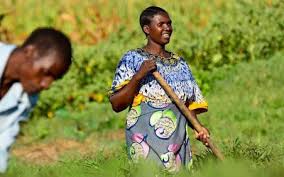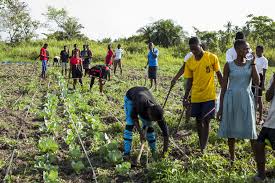The philosophy of rural youth programmes in agricultural extension explains the reasons as well as the methods and techniques which could be used to achieve sustainable rural youth development programmes in agricultural extension.
The method of carrying out rural youth extension programmes revolves around education of the youth. The youth are made to be aware of their problems and guided towards solving them through educational means.
The purposes of rural youth extension programmes are social development and economic empowerment of the youth.
Read Also: How to Extract and Package Snail Slime (Snail filtrate) for Commercial Use
Philosophical Foundations of Rural Youth Extension Programmes in Agricultural Development

The philosophies are stated and discussed in the following paragraphs:
1. Rural youth have latent talents and abilities which could be developed for the benefit of the society: Many rural youth die with their talents because of lack of guidance and rural youth programmes designed for their welfare.
The establishment of rural youth programmes, particularly in agricultural extension, helps to direct and activate the talents of the youth for their own benefit and that of the society.
2. The youth are leaders of tomorrow: A rural youth programme in agricultural extension provides an avenue for preparing the youth to take up leadership positions and responsibilities. Leadership is attained in any given vocation through discipline and mastery of the art and science of that vocation.
3. When the youth are not engaged in worthwhile ventures, they become a problem to the society: Rural youth programmes are built around the philosophy of helping the youth to help themselves. These programmes assist the youth in achieving their educational and economic goals.
When the youth are gainfully employed, they do not involve themselves in acts inimical to society. The youth stage of life calls for proper management by the leaders to reduce youth restiveness, crisis, idleness, and deviant behaviours.
4. It is better for government authorities to organise youths into different bodies: for the purpose of reaching out to them for economic empowerment and in furtherance of democracy. Rural youth programmes in agricultural extension are designed to bring the youths into the mainstream of social and economic development. This cannot be achieved without organising the youths into youth bodies or organisations.
5. Membership of rural youth programmes is voluntary: Rural youth programmes are open to any rural youth who meets the requirements for membership and participation. The major membership requirements are parents’ consent and willingness to carry out projects. Youths are not coerced to join. There is free entry and free exit. The programmes are non-political and non-sectarian.
6. Rural youth programmes are usually operated through joint endeavour: It involves the use of non-directive and participatory approaches. The programmes are not forced on the people; rather, they evolve from the people themselves. The professional youth leader acts merely as a facilitator.
The programme involves the people, government authorities, and NGOs. The programmes are organised in the villages and supervised by the professional youth leader (Ovwigho, 2004).
7. The philosophies of rural youth programmes in agricultural extension are concerned with the reasons, methods, and techniques for sustainable rural youth programmes: The method of carrying out rural youth programmes is by education. The reasons for rural youth programmes in agricultural extension are geared towards social and economic empowerment of the youth.
Read Also: The Health Benefits of Using Accent Seasoning on your Cooking
Summary of the Philosophies Behind Rural Youth Programmes in Agricultural Extension

1. Rural youths have latent talents and abilities which could be developed for the benefit of the society
2. Rural youth programmes are usually operated through joint endeavour
3. Youths are leaders of tomorrow
4. When youths are not engaged in worthwhile ventures, they become a problem to the society
5. The organised youths benefit more from government development initiatives than the unorganised youths
6. Membership of rural youth programmes is voluntary
Do you have any questions, suggestions, or contributions? If so, please feel free to use the comment box below to share your thoughts. We also encourage you to kindly share this information with others who might benefit from it. Since we can’t reach everyone at once, we truly appreciate your help in spreading the word. Thank you so much for your support and for sharing!

